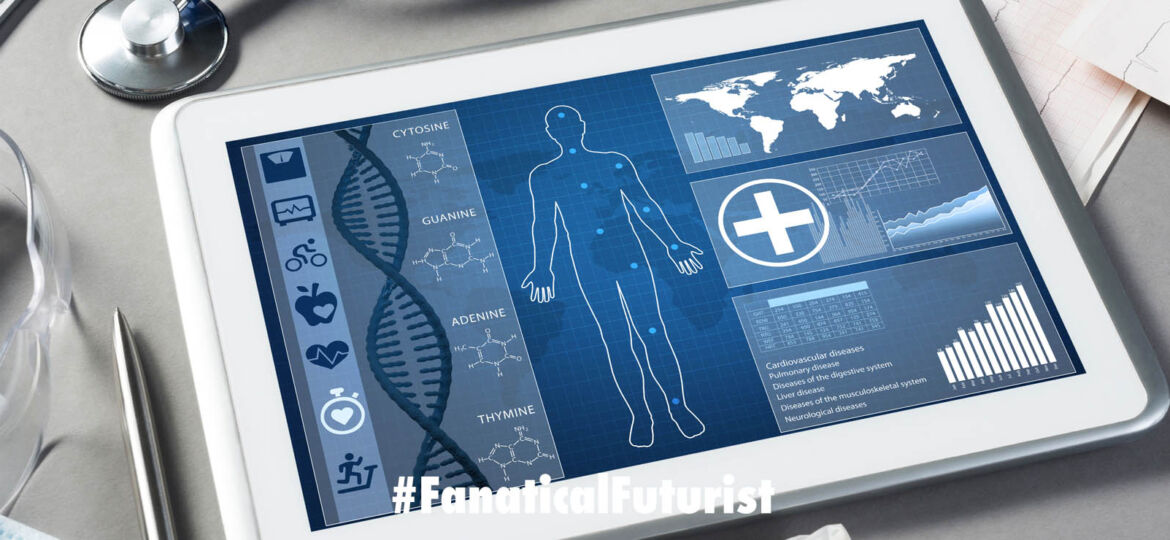
WHY THIS MATTERS IN BRIEF
Most medical implants are dumb, but by creating the world’s first biocompatible AI researchers are literally putting a doctor inside your body.
 Love the Exponential Future? Join our XPotential Community, future proof yourself with courses from XPotential University, read about exponential tech and trends, connect, watch a keynote, or browse my blog.
Love the Exponential Future? Join our XPotential Community, future proof yourself with courses from XPotential University, read about exponential tech and trends, connect, watch a keynote, or browse my blog.
A new study published in Science Advances by European scientists working in optoelectronics have created a revolutionary biocompatible Artificial Intelligence (AI) sensor embedded with its own neuromorphic computing system, which processes and analyses information in the same way as the human brain, that could pave the way for the very early detection detection, monitoring, and treatment of all manner of diseases and medical conditions.
“We prove the usefulness of the organic networks on a diverse set of computational tasks such as a flower classification using the Iris dataset (accuracy of 96%), time-series prediction (97%), and biofluids monitoring,” wrote the study authors led by the Technische Universität Dresden in collaboration with the National University of Kyiv-Mohyla Academy in the Ukraine, and Alysophil in France.
Optoelectronics is the field of study and application of the quantum mechanical effects of light used in electronic devices such as pharmaceutics, batteries, cosmetics, lasers, optical fiber, solar cells (photovoltaics), photodiodes, LED traffic lights, consumer electronics, and nanoscale devices.
“Early detection of malign patterns in patients’ biological signals can save millions of lives,” wrote the researchers.
In the medical, biotechnology, health care and life science industries, optoelectronics sensors are used for blood glucose monitoring, pulse oximetry, blood diagnostics, bone densitometers, and patient monitoring systems. And now all these dumb systems could be embedded with their own intelligence.
In current biocompatible organic materials for electronics, namely organic electrochemical transistors (OECTs), the processing of the information is somewhat inadequate. In efforts to solve this, the scientists took a brain-inspired framework for computation. The researchers created a biocompatible hardware-based artificial neural network (ANN) based on organic electrochemical transistors.
“In this work, we build nonlinear, dendritic networks of OECTs and use them for information processing on biosignals, demonstrating real-time classification in a biocompatible, hardware neural network,” wrote the researchers.
Polymer-based fibers were used to form a recurrent neural network that is analogous to the human brain. The scientist applied a neuromorphic design made of organic electrochemical transistors with reservoir computing (RC) to enable time-series predictions and classification tasks.
In AI, reservoir computing is a recurrent neural network-based computing framework that enables the processing of input data with varying times. A dynamic reservoir maps complex input data in a nonlinear manner into high-dimensional states. Virtual nodes enable rapid training of readout weights with a relatively low cost of computation.
When testing the classification of arrhythmic heartbeats, the researchers reported an accuracy of 88 percent.
“The results of this study introduce a previously unexplored paradigm for biocompatible computational platforms and may enable development of ultralow–power consumption hardware-based artificial neural networks capable of interacting with body fluids and biological tissues,” the scientist reported.
By combining the innovative technologies of AI machine learning with optoelectronics, scientists have taken a step towards novel diagnostics and therapeutics that may extend human longevity and overall quality of life in the future.
















